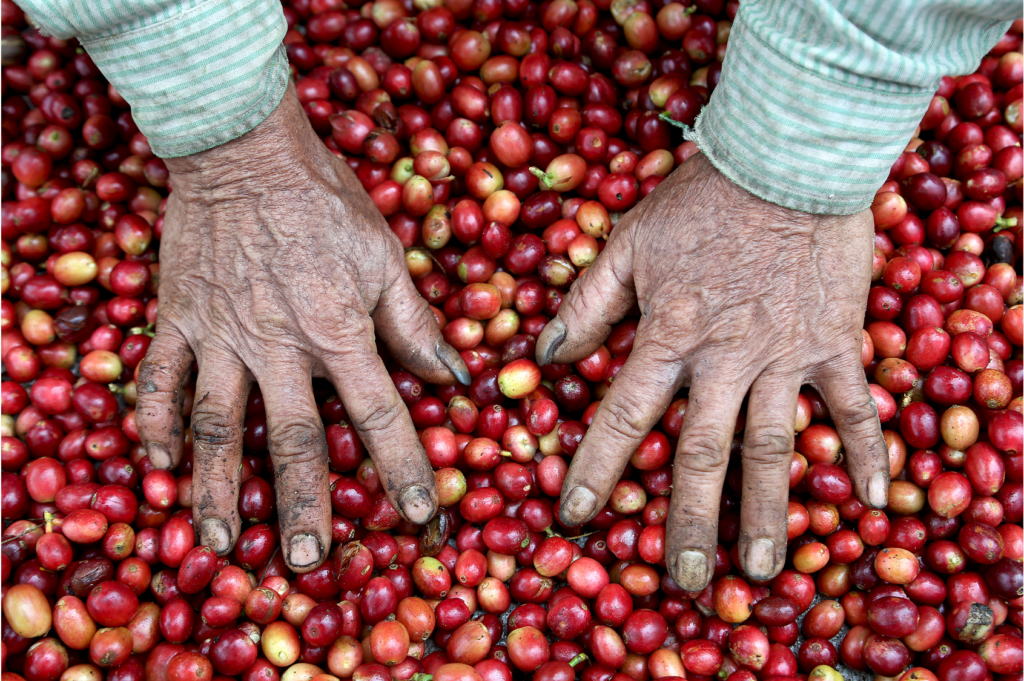Coffee is a labor-intensive crop grown in some of the most economically marginalized and environmentally sensitive regions of the world. The life of not only the plants themselves, but also of the farmers, the pickers, and their families and communities, are vulnerable to rapid political changes and economic challenges, as well as the ever-increasing unpredictability of weather patterns across the tropics. The stories of their lives are equally complicated and truly inspiring.
We directly buy beans from folks that tender the older, traditional growing and preparation practices. While these methods take longer, and are becoming more mechanized these days to meet demand, you will certainly notice a difference in these special beans.
The beans we love the most are from the older coffee varietals that grow nearly wild at high mountain altitudes. Grown without the use of pesticides, these coffee plants are allowed to naturally adapt to the climate, environment, and pests, while the mineral-rich volcanic soil infuses them with vibrantly deep and complex flavor.
After being handpicked, and only when ripe, the beans are properly aged, fermented, washed, and dried on patios in the equatorial sun. When fully dry, they are then separated from their parchment, sorted and graded for quality and size and, finally, shipped to us.
Last, it must be said, that the legacy of colonization and coffee are inextricably interwoven, leaving new generations of coffee growers, buyers, and roasters with the responsibility to honor and learn about the history and lives of the original people who inhabit the lands where coffee grows.

